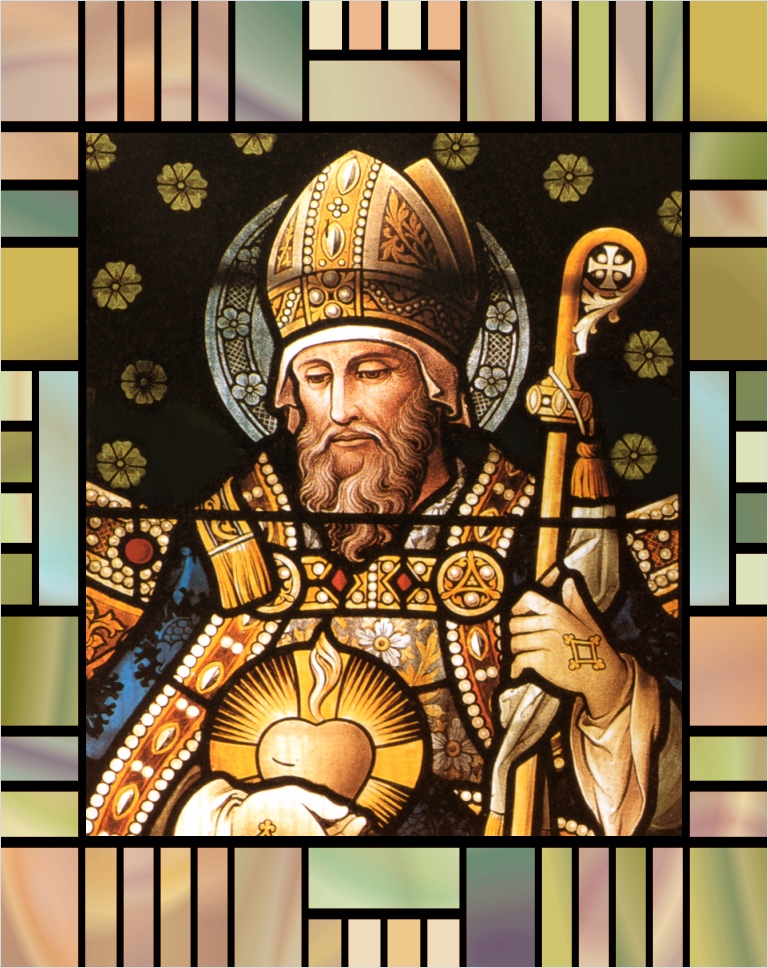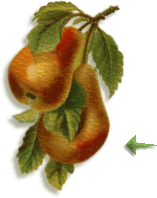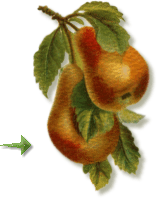

Saint Francis de
Sales
Doctor of the Church
January 29
The Bishop of Geneva, he was born at Thorens, in the Duchy of Savoy,
August 21, 1567; died at Lyons, December 28, 1622. His father,
François de Sales de Boisy, and his mother, Françoise de
Sionnaz, belonged to old Savoyard aristocratic families. The future
Saint was the eldest of six brothers. His father intended him for the
magistracy and sent him at an early age to the colleges of La Roche and
Annecy. From 1583 till 1588 he studied rhetoric and humanities at the
college of Clermont, Paris, under the care of the Jesuits. While there
he began a course of theology. After a terrible and prolonged
temptation to despair, caused by the discussions of the theologians of
the day on the question of predestination, from which he was suddenly
freed as he knelt before a miraculous image of Our Lady at St.
Etienne-des-Grès, he made a vow of chastity and consecrated
himself to the Blessed Virgin Mary. In 1588 he studied law at Padua,
where the Jesuit Father Possevin was his spiritual director. He
received his diploma of doctorate from the famous Pancirola in 1592.
Having been admitted as a lawyer before the senate of Chambéry,
he was about to be appointed senator. His father had selected one of
the noblest heiresses of Savoy to be the partner of his future life,
but Francis declared his intention of embracing the ecclesiastical
life. A sharp struggle ensued. His father would not consent to see his
expectations thwarted. Then Claude de Granier, Bishop of Geneva,
obtained for Francis, on his own initiative, the position of Provost of
the Chapter of Geneva, a post in the patronage of the pope. It was the
highest office in the diocese, M. de Boisy yielded and Francis received
Holy Orders in 1593.
From the time of the Reformation the seat of the Bishopric of Geneva
had been fixed at Annecy. There with apostolic zeal, the new provost
devoted himself to preaching, hearing confessions, and the other work
of his ministry. In the following year he volunteered to evangelize Le
Chablais, where the Genevans had imposed the Reformed Faith, and which
had just been restored to the Duchy of Savoy. He made his headquarters
in the fortress of Allinges. Risking his life, he journeyed through the
entire district, preaching constantly; by dint of zeal, learning,
kindness and holiness he at last obtained a hearing. He then settled in
Thonon, the chief town. He confuted the preachers sent by Geneva to
oppose him; he converted the syndic and several prominent Calvinists.
At the request of the pope, Clement VIII, he went to Geneva to
interview Theodore Beza, who was called the Patriarch of the
Reformation. The latter received him kindly and seemed for a while
shaken, but had not the courage to take the final steps. A large part
of the inhabitants of Le Chablais returned to the true fold (1597 and
1598). Claude de Granier then chose Francis as his coadjutor, in spite
of his refusal, and sent him to Rome (1599).
Pope Clement VIII ratified the choice; but he wished to examine the
candidate personally, in presence of the Sacred College. The improvised
examination was a triumph for Francis. "Drink, my son", said the Pope
to him. "from your cistern, and from your living wellspring; may your
waters issue forth, and may they become public fountains where the
world may quench its thirst." The prophesy was to be realized. On his
return from Rome the religious affairs of the territory of Gex, a
dependency of France, necessitated his going to Paris. There the
coadjutor formed an intimate friendship with Cardinal de
Bérulle, Antoine Deshayes, secretary of Henry IV, and Henry IV
himself, who wished "to make a third in this fair friendship" (être
de tiers dans cette belle amitié). The king made him preach
the Lent at Court, and wished to keep him in France. He urged him to
continue, by his sermons and writings, to teach those souls that had to
live in the world how to have confidence in God, and how to be
genuinely and truly pious-----graces of which he saw the
great necessity.
On the death of Claude de Granier, Francis was consecrated Bishop of
Geneva (1602). His first step was to institute catechetical
instructions for the faithful, both young and old. He made prudent
regulations for the guidance of his clergy. He carefully visited the
parishes scattered through the rugged mountains of his diocese. He
reformed the religious communities. His goodness, patience and mildness
became proverbial. He had an intense love for the poor, especially
those who were of respectable family. His food was plain, his dress and
his household simple. He completely dispensed with superfluities and
lived with the greatest economy, in order to be able to provide more
abundantly for the wants of the needy. He heard confessions, gave
advice, and preached incessantly. He wrote innumerable letters (mainly
letters of direction) and found time to publish the numerous works
mentioned below. Together with St. Jane Frances de Chantal, he founded
(1607) the Institute of the Visitation of the Blessed Virgin, for young
girls and widows who, feeling themselves called to the religious life,
have not sufficient strength, or lack inclination, for the corporal
austerities of the great orders. His zeal extended beyond the limits of
his own diocese. He delivered the Lent and Advent discourses which are
still famous-----those at Dijon (1604), where he first
met the Baroness de Chantal; at Chambéry (1606); at Grenoble
(1616, 1617, 1618), where he converted the Maréchal de
Lesdiguières. During his last stay in Paris (November, 1618, to
September, 1619) he had to go into the pulpit each day to satisfy the
pious wishes of those who thronged to hear him. "Never", said they,
"have such holy, such apostolic sermons been preached." He came into
contact here with all the distinguished ecclesiastics of the day, and
in particular with St. Vincent de Paul. His friends tried energetically
to induce him to remain in France, offering him first the wealthy Abbey
of Ste. Geneviève and then the coadjutor-bishopric of Paris, but
he refused all to return to Annecy.
In 1622 he had to accompany the Court of Savoy into France. At Lyons he
insisted on occupying a small, poorly furnished room in a house
belonging to the gardener of the Visitation Convent. There, on December
27, he was seized with apoplexy. He received the last sacraments and
made his profession of faith, repeating constantly the words: "God's
will be done! Jesus, my God and my all!" He died next day, in the
fifty-sixth year of his age. Immense crowds flocked to visit his
remains, which the people of Lyons were anxious to keep in their city.
With much difficulty his body was brought back to Annecy, but his heart
was left at Lyons. A great number of wonderful favours have been
obtained at his tomb in the Visitation Convent of Annecy. His heart, at
the time of the French Revolution, was carried by the Visitation nuns
from Lyons to Venice, where it is venerated today. St. Francis de Sales
was beatified in 1661, and canonized by Alexander VII in 1665; he was
proclaimed Doctor of the Universal Church by Pope Pius IX, in 1877.
VIEW THE CARLO MARATTA
IMAGE
 
HOME---------------PRAYERS AND
DEVOTIONS-----------------LITANY
OF ST. FRANCIS DE SALES
www.catholictradition.org/Saints/saints1-16.htm
|







